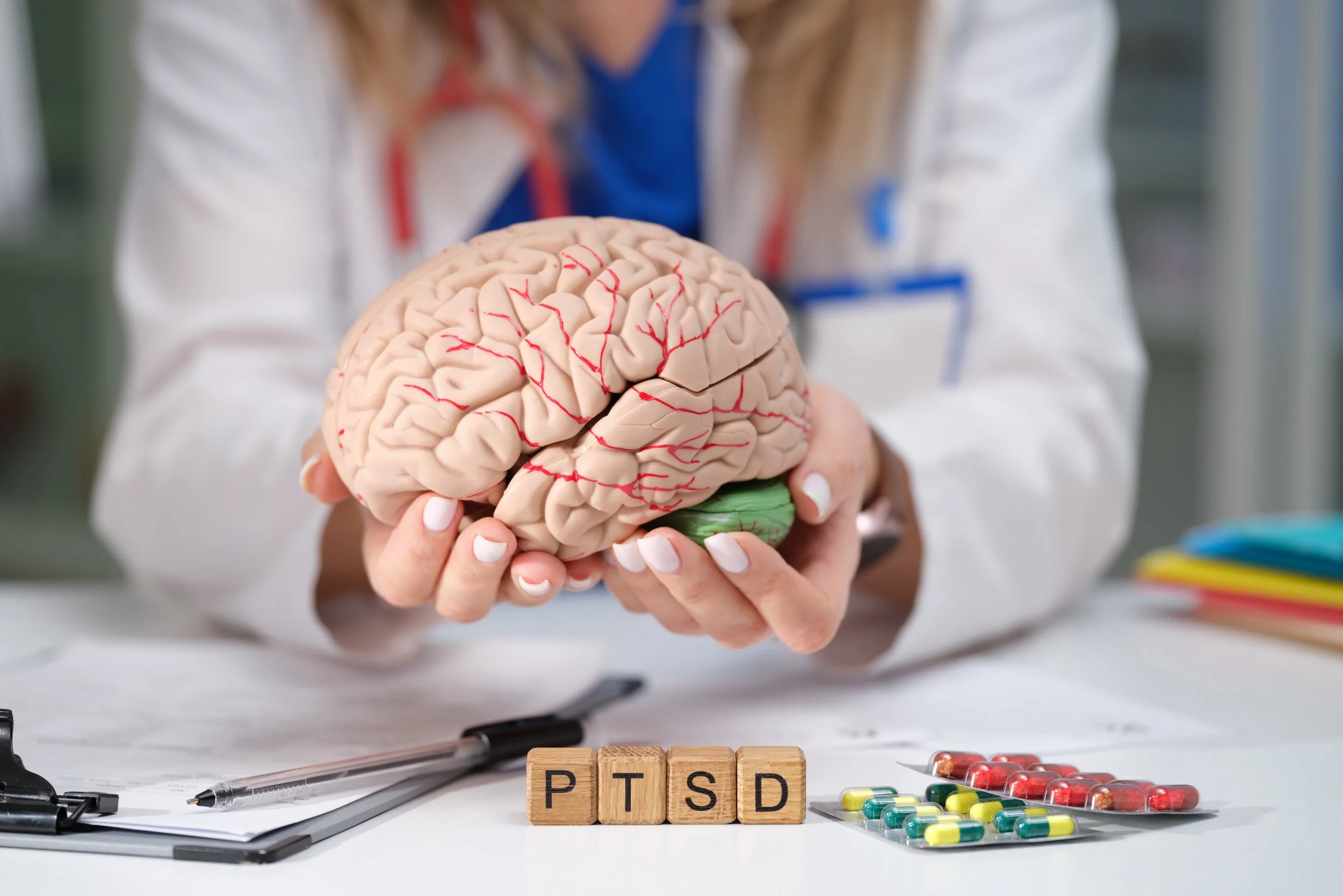
PTSD Therapy That Helps You Feel Safe Again
Your trauma is real, but it doesn’t have to define you.
When trauma won’t let go
Post-Traumatic Stress Disorder (PTSD) isn’t something you can “get over” on your own. It can show up as flashbacks, hypervigilance, panic, dissociation, or a constant sense that something isn’t safe — even when nothing looks wrong on the outside.
Whether your trauma was recent or buried for years, therapy offers a way to understand your body’s response, reclaim your sense of safety, and start healing.
Trauma lives in the nervous system. It affects how you think, feel, remember, and respond — often without your conscious control. We help you understand these responses as survival strategies that once made sense, even if they feel overwhelming now.
With a trained therapist, you can begin to process what happened without being re-traumatized and develop tools to bring your nervous system out of survival mode.
How PTSD therapy works
We work with clients navigating all forms of trauma, including:
PTSD from assault, accidents, abuse, or violence
Medical trauma or near-death experiences
Complex trauma and long-term emotional neglect
Religious, identity-based, or systemic trauma
Traumatic grief or loss
Childhood trauma and attachment wounds
We also work with clients who have symptoms but no “clear” memory of trauma. Your experience matters, whether or not it has a label.
What PTSD therapy supports
At Tangible Therapy, we offer evidence-based trauma care using modalities like:
EMDR (Eye Movement Desensitization and Reprocessing)
Internal Family Systems (IFS)
Somatic and mindfulness-based techniques
Skills for grounding, regulation, and emotional safety
You’ll move at your own pace without being pushed or retraumatized. We’ll follow your cues and always prioritize your emotional and physical safety.
A trauma-informed, body-aware approach
PTSD therapy doesn’t erase what happened. But it can change how it lives in your body and mind. You can feel safe again. You can trust yourself again. You can rebuild.
You're not broken. Your body adapted to survive
What you’ll get
✺ Frequently asked questions ✺
-
You don’t need a formal diagnosis to seek support. If you’re experiencing symptoms like anxiety, emotional numbing, nightmares, or constant alertness, therapy can help.
-
Only if and when you're ready. We never force you to retell traumatic experiences. There are effective ways to process trauma that don’t involve going into every detail.
-
There’s no scale. It matters if something hurt you, changed how you move through the world, or left a lasting impact. All trauma is valid here — there’s no comparison.
-
It shouldn’t be. Trauma-informed therapy is designed to avoid reactivating overwhelming memories. We focus on creating a sense of safety and grounding before doing any deeper work.
-
Yes. Many trauma survivors experience dissociation, fogginess, or emotional shutdown. We use gentle, body-aware tools to help you stay present without feeling unsafe.






